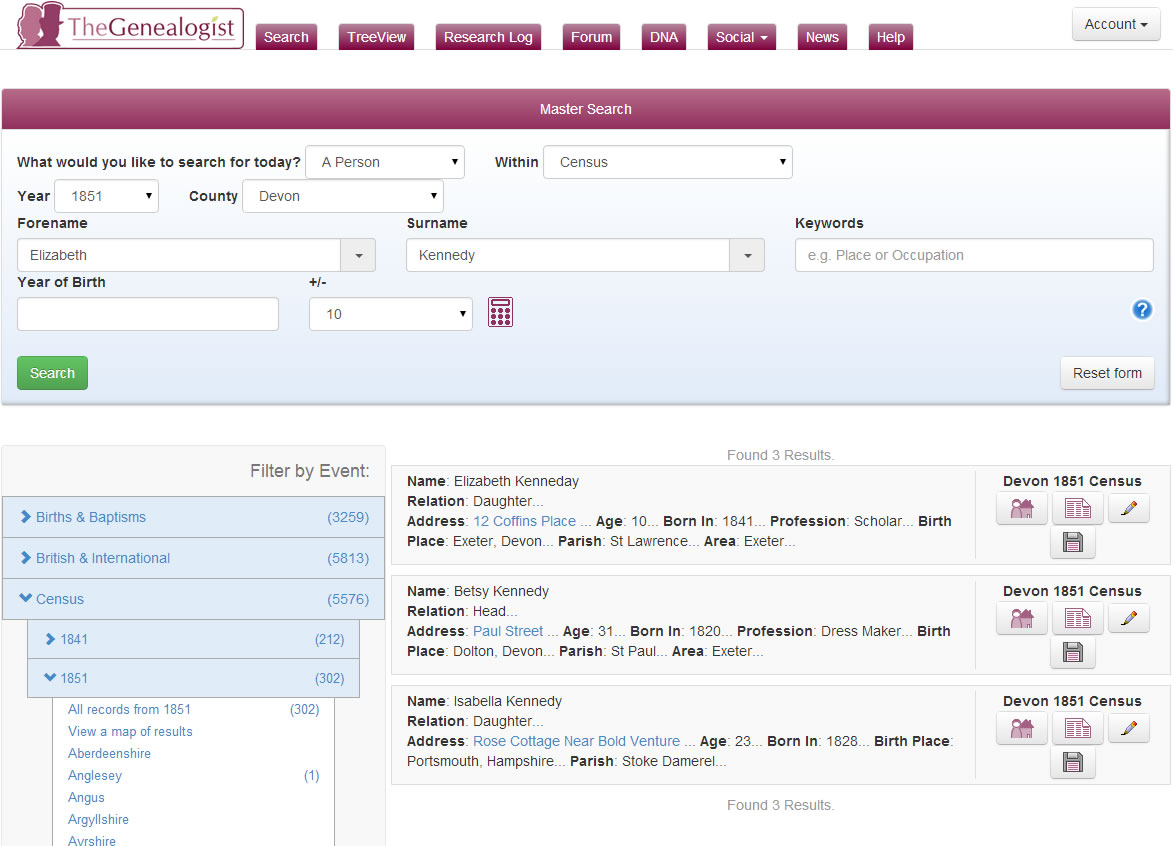
Discover Your Ancestors
Two critically acclaimed publications are available to family history researchers - the annual print magazine, Discover Your Ancestors, and the monthly online magazine, Discover Your Ancestors Periodical. Click here to subscribe.The Skill of Search
Here are some tips to get the most out of the unique Master Search features at TheGenealogist
Knowing how to use search engines is a skill in itself – although we all expect to simply throw in a name, click a button and get the right results, there are techniques which can help. Many search engines - including Google – offer a wealth of 'hidden' features for reefing your results (or widening them). This is very much the case with the incredibly powerful Master Search at leading data website www.TheGenealogist.co.uk.
In the case of census records before 1911, remember that the enumeration books are only a coy of the individual household census forms, so the enumerator may have transcribed the information incorrectly in the first place or the information may simply have been wrong. Also some people managed to miss being enumerated at all, whilst others manage to be in two places at once.

The Genealogist's Master Search includes powerful features for finding your family. Here, for example, a search for Elizabeth Kennedy brings up people called Betsy and Isabella, both variants of the name, if we tick the 'Include Nicknames' box. Results can also be widened or refined by the careful use of the wildcard '*', e.g. 'Kenn' to catch all people whose surnames begin with those letters (note that this can't be used at the same time as phonetic or nickname searches).
To help find those elusive ancestors requires thinking about how can you match all those possible miss interpretations of someone's name. Better still is thinking about what is more likely to be recorded accurately. The first option is to maximise the number of possible entries by using various facilities built into Master Search.
Wildcards: Try using the wildcard character (*) to match any number of characters after the first 3. Thus 'Ken*' will match Kent, as well as Kendall and Kennedy. This will pull up entries which may have been spelt incorrectly in the original enumerators books.
Nicknames: Try ticking this option to search for nicknames which may have been used instead of the standard name – for example Betty, Betsy, Beth or Liz for Elizabeth.
Phonetic matching: Try ticking this option to search for different spellings of a name. For example, Bailey and Bayley. This technique uses the sound of a name to find similar matches which produces much more accurate results compared to the name variant matches used by other websites.
Keywords: Keywords are a great way to refine your results, especially when searching for a common name such as Smith. Just enter any piece of information that would be found on a record; such as occupation, street or place.
The above search options will help to improve the number of results you get. If you get too many results, try adding in extra search criteria, e.g. a year range, try unticking variants, or adjust your wildcard search. For example if you have hundreds of results with 'Ken*' and you are looking for possible miss-spellings of 'Kennedy', try 'Kenn*' instead.
These techniques should help you find the person you are looking for. Don't forget to use the Master Search to check out the adjacent counties, too. Another good alternative strategy is to look for the husband/wife or son/daughter to locate the family. Master Search uniquely allows you to search for either a person or a family, or even to find anyone at a particular address in census records.